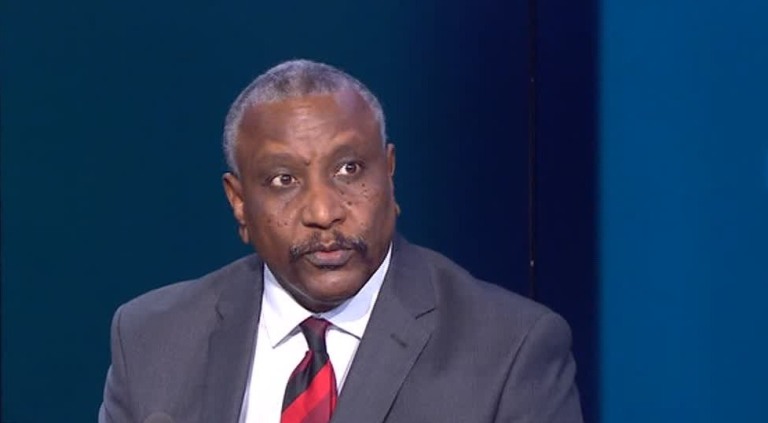Burhan’s coup triggered heated debate among Sudan’s peace groups
December 23, 2021 (KHARTOUM) – Yasser Arman, Deputy Head of the SPLM-N led by Malik Agar, said that the recent coup threatens the Juba Peace Agreement. Also, it raised a heated debate over the participation of the signatory groups in the government.
The Forces for Freedom and Change held a press conference on Thursday within a plan aiming to explain their plans to defeat the coup and mobilize the political forces to establish a broad new coalition.
Arman in his intervention called to stick to the peaceful action to protest against the coup of October 25, 2021.
He added he was well placed to say that the armed struggle was not the best option to build a democratic regime in Sudan stressing that all the governments established by the armed movements in African and neighbouring countries did not yield democracy.
Regarding the participation of the signatory groups in the post-coup government, the SPLM-N deputy leader said the groups led by Agar, Hadi Idris and Tahir Hajar did not take part in the coup and they did not accept it.
However, he admitted that they were “caught in a real dilemma” because of this coup.
He added they had to decide between sticking to the peace agreement or abandoning it.
Also, they wondered “Whether abandoning the peace agreement will lead to another war or not?”
“A fierce debate is taking place within our Movement and within other movements as well as the Sudanese Revolutionary Front (SRF) about how to deal with it, but no one accepts a coup,” he stressed.
Some members of the SRF groups reigned to protest the position of their leaders to remain the Sovereign Council after the coup.
The SLM of Minni Minnawi and the Justice and Equality Movement of Gibril Ibrahim supported the coup abs accused the FFC groups of hampering the partnership with their allied military leaders.
The two groups allegedly participated in the joint forces deployed after the coup to disperse the protests.
The positions of the two SRF factions from the coup distorted their image in the Sudanese street.
Arman reiterated they stand with the street pointing that they are in Khartoum today thanks to the December revolution.
This revolution took place as a result of the accumulation of struggle in rural and urban areas, including peaceful and armed action, he said.
“But it must be clearly stated that without the December revolution, we would not have reached a peace agreement, and we would not have sat in the (power) chairs that we are sitting on now. Therefore, our first affiliation is with the Sudanese people,” he stressed.
The SRF top negotiator during the peace talks in Juba repeated that the 25th October coup threatens the peace agreement because it cancelled the political framework for which it was designed.
He said the democratic transition was the political pillar of the peace agreement without it the peace implementation would not succeed.
He said the self-government, the return of land ownership to the displaced and refugees and equal citizenship cannot be implemented without a democratic government.
He added that the second pillar is the security arrangements which provide to reform army to professional national corps in which the armed groups would be integrated.
“All this has not yet been implemented,” he said.
(ST

